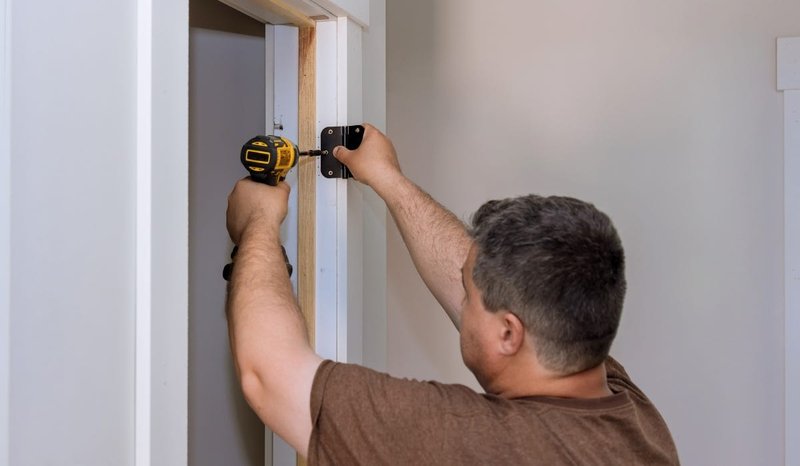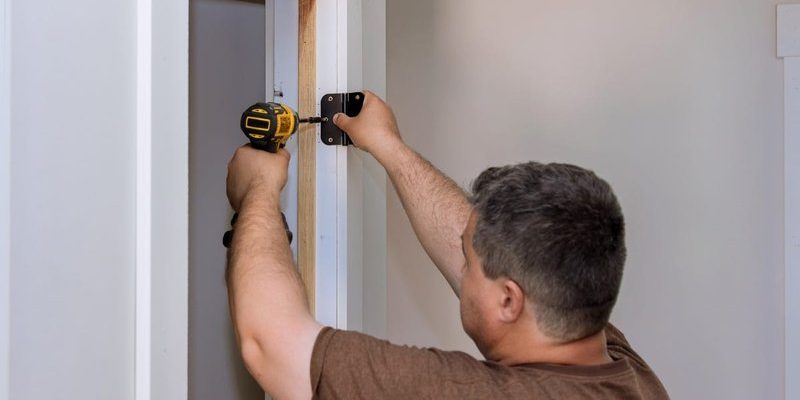
Think of your interior door hinges as the quiet backbone of your home. They hold things together but are often overlooked. If you want to keep them functioning smoothly and avoid those annoying squeaks or, worse, a door that won’t budge, you’ve landed in the right place. Let’s dive into some practical tips and tricks to extend the life of your interior door hinges.
Understanding Door Hinges: The Basics
First off, let’s quickly cover what hinges actually do. Hinges are mechanical devices that allow doors to swing open and shut. They connect the door to the door frame and provide the necessary pivot. There are various types of hinges—piano hinges, spring hinges, and decorative ones—but the most common interior hinge is the butt hinge. This is what you’re likely dealing with throughout your home.
Now, you may be wondering, *”Why should I care about my hinges?”* Here’s a simple answer: well-maintained hinges not only ensure smooth operation, but they also prolong the lifespan of your doors. Imagine trying to lift a heavy suitcase with a broken handle. It’s doable, but it’s going to be a pain. That’s what life is like for your doors when their hinges are out of shape.
Regular Cleaning: A Simple Step
Cleaning might seem boring, but it’s one of the best ways to keep your door hinges in check. Dust and dirt can accumulate around hinges, leading to unnecessary friction. Here’s how to clean them effectively:
- Gather your supplies: You’ll need a damp cloth, a clean dry cloth, and a mild cleaner.
- Wipe away dirt: Use the damp cloth to clean around the hinge. Pay attention to the areas where the hinge meets the door and frame.
- Dry it off: Use the dry cloth to wipe away any moisture. This helps prevent rust and other issues.
Cleaning your hinges regularly—say, every few months—can go a long way. Think of it as giving them a little TLC to keep them working like new.
Lubrication: The Key to Smooth Operation
Here’s the thing: a little lubricant can make a huge difference. Over time, hinges can become squeaky or hard to move, which can be annoying. Keeping them lubricated helps them function smoothly. You might be wondering what type of lubricant to use; here’s a quick guide:
- Graphite powder: Ideal for a long-lasting solution. It doesn’t attract dust.
- Silicone spray: Great for a quick fix; it creates a protective barrier and is easy to apply.
- WD-40: This is a go-to for many. Just remember to wipe off any excess so it doesn’t attract dirt.
To lubricate your hinges, simply spray or apply the lubricant, then swing the door back and forth a few times. This action helps the product seep into all the nooks and crannies. Voila! You’ve just extended the life of your hinges.
Inspecting for Wear and Tear
Regular inspections can save you from bigger headaches down the line. It’s like getting regular check-ups at the doctor. Look for any signs of wear and tear, such as:
- Rust: If you see rust, it’s time to replace or clean the hinge.
- Loose screws: Tightening screws can help maintain stability.
- Warping: A warped hinge can indicate that it needs replacement.
If you catch these issues early, you can prevent further damage. A simple screw-tightening or hinge-replacement can be the difference between a functioning door and one that’s off-kilter.
Choosing Quality Hinges: The Right Investment
Not all hinges are created equal. When it’s time to replace them, consider investing in high-quality options. Cheaper hinges might save you money upfront, but they could wear out faster. Look for sturdy materials, ideally stainless steel or brass, which are less likely to rust.
When selecting new hinges, keep the following in mind:
- Size and weight: Make sure they match your door size and weight.
- Style: Choose a design that complements your home decor.
- Corrosion resistance: Look for finishes that resist rust.
Choosing the right hinges can enhance the aesthetics of your doors while ensuring they last longer.
Managing Humidity and Temperature
Humidity and temperature can affect door hinges, especially in certain climates. High humidity can lead to rust, while low humidity can cause wooden doors to swell and warp, affecting your hinges. Here’s what you can do:
- Use a dehumidifier: If you live in a humid area, consider investing in one.
- Monitor your home’s temperature: Keep your home at a consistent temperature to prevent warping.
- Seal wooden doors: Use a sealant to protect the door material from moisture.
Taking these steps can help maintain a stable environment for your door hinges, reducing the wear and tear they undergo.
Caring for your interior door hinges might not seem like a priority, but trust me, it’s worth the effort. By regularly cleaning and lubricating them, inspecting for wear, and choosing quality replacements, you’ll keep your doors operating smoothly and looking great. Think of it as giving your home the little nudges it needs to stay in top shape. A little attention goes a long way, ensuring your hinges last longer and your doors open with ease. So, the next time you walk through a doorway, take a moment to appreciate those little hinges that make it all happen!
